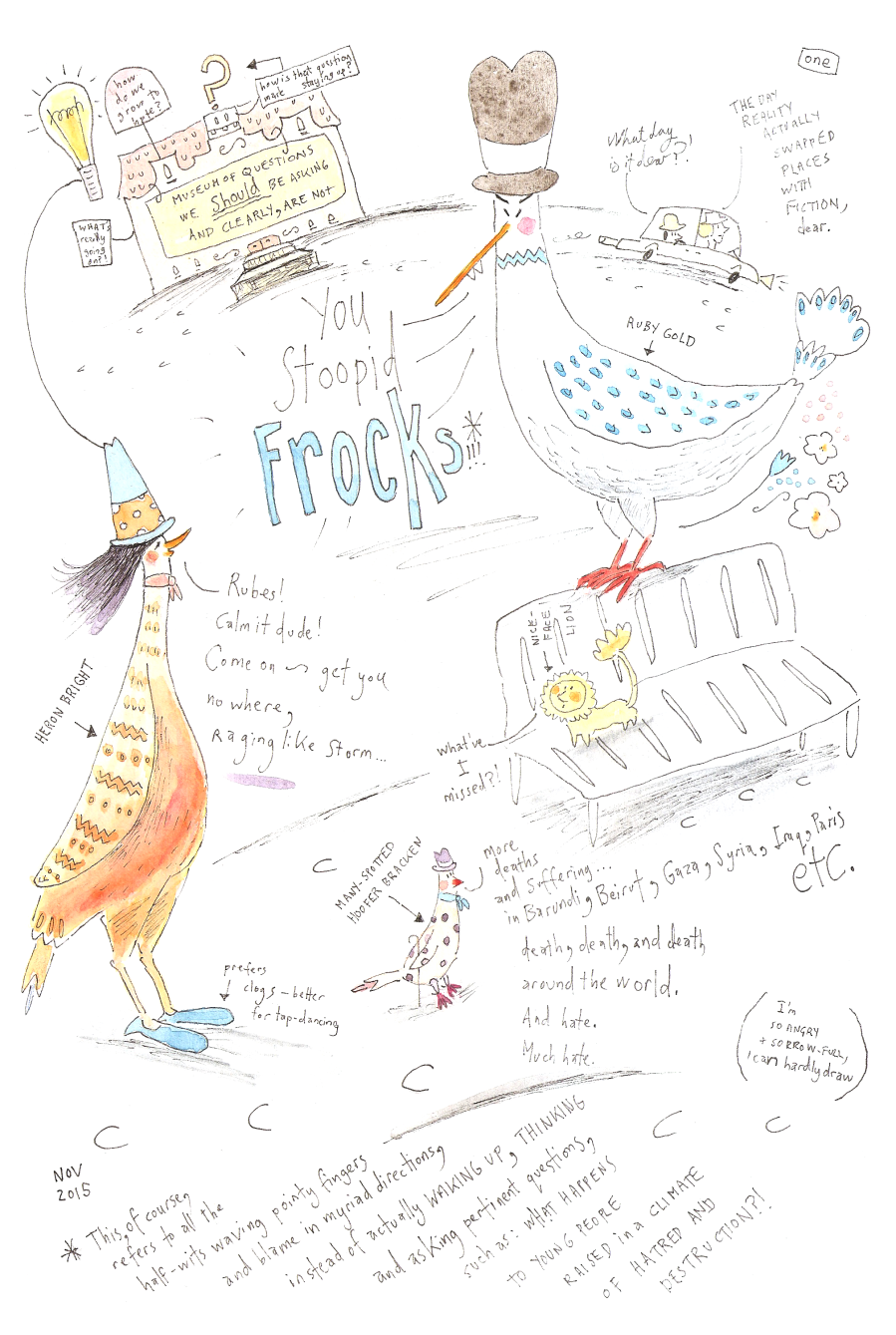
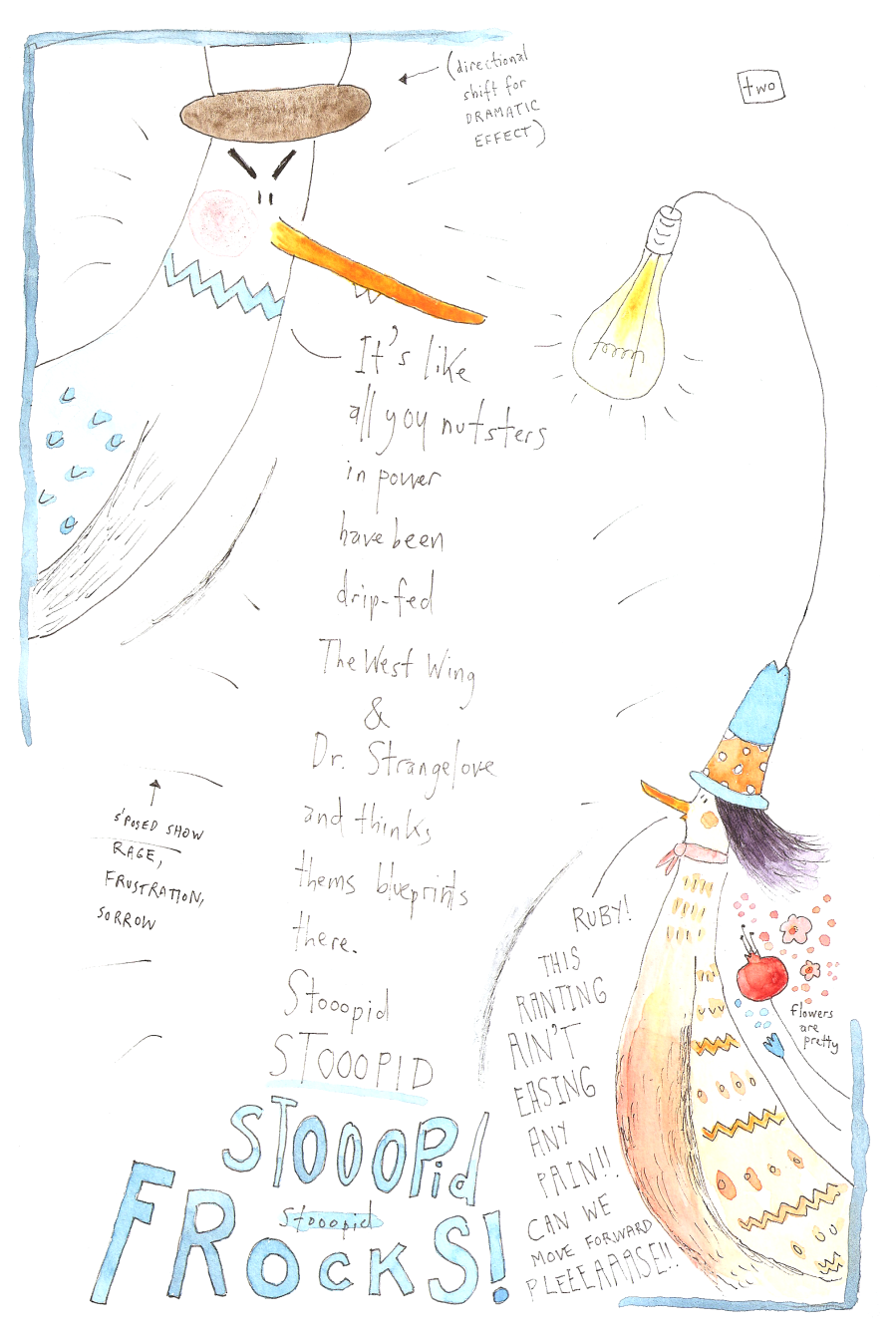
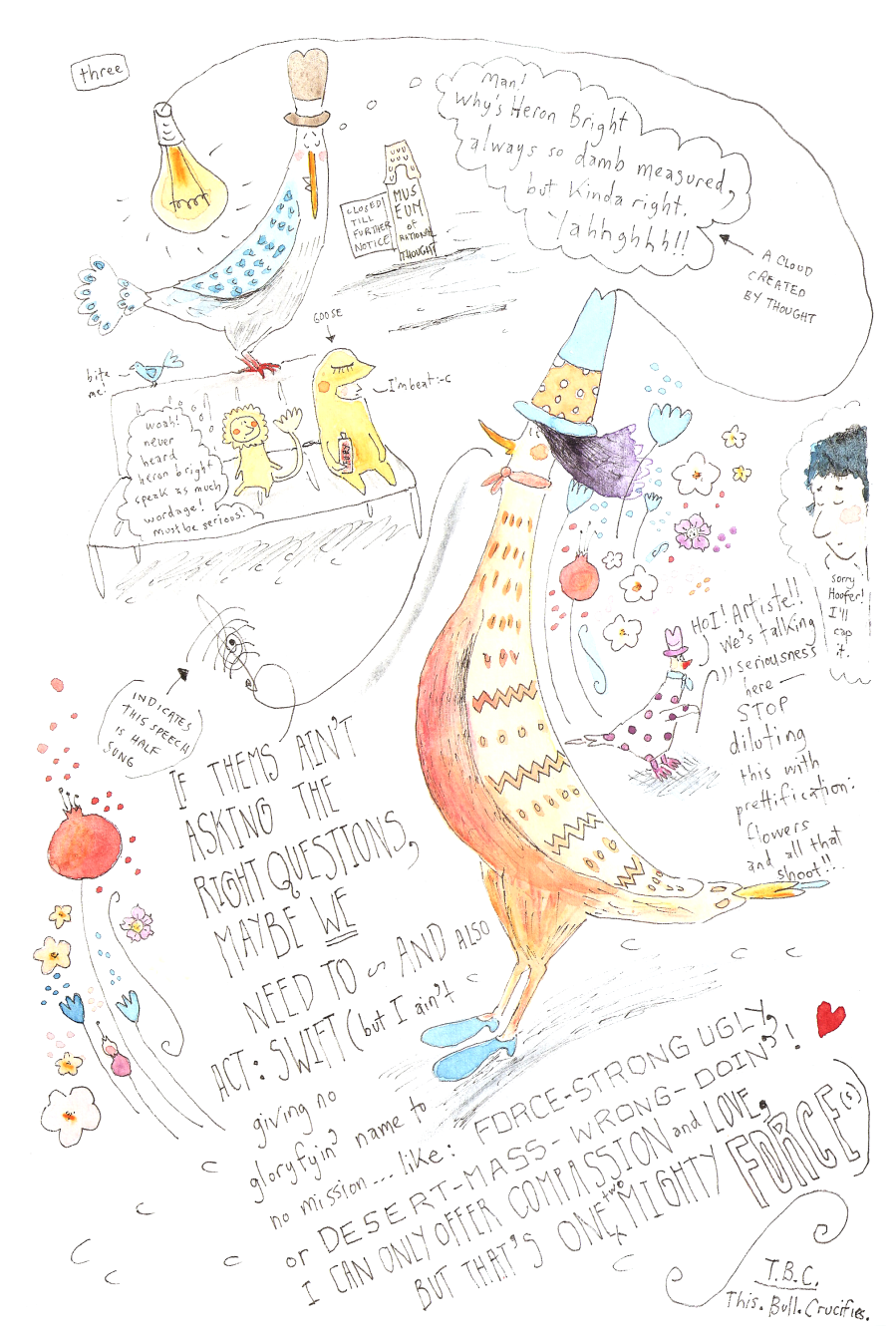
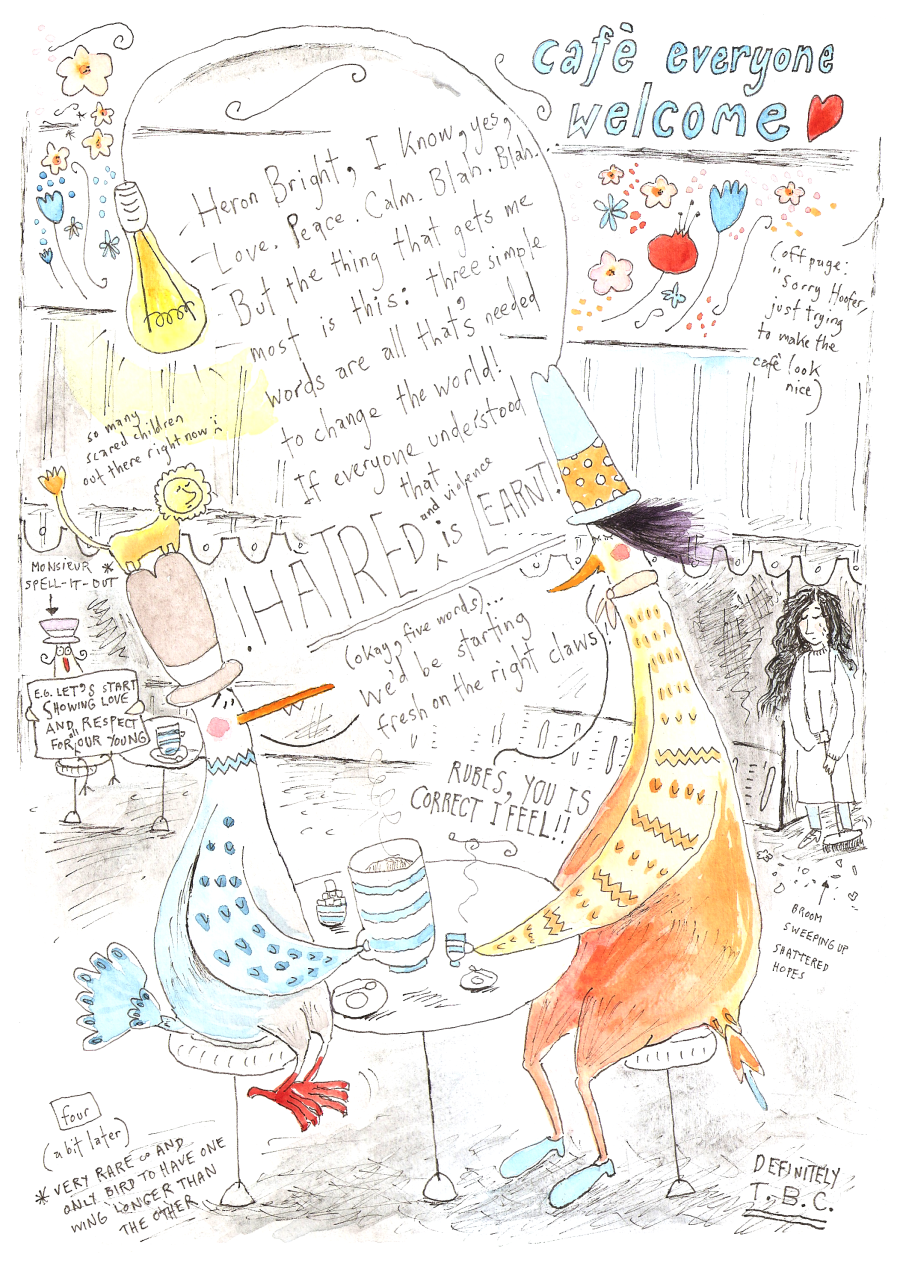
Filed under: love, pigeons, Ruby Gold




Imagine a possible world where you are having coffee with … Aristotle! You begin exchanging views on how you like the coffee; you examine its qualities – it is bitter, hot, aromatic, etc. It tastes to you this way or this other way. But how do you make these perceptual judgments? It might seem obvious to say that it is via the senses we are endowed with. Which senses though? How many senses are involved in coffee tasting? And how many senses do we have in all?
The question of how many senses we have is far from being of interest to philosophers only; perhaps surprisingly, it appears to be at the forefront of our thinking – so much so that it was even made the topic of an episode of the BBC comedy program QI. Yet, it is a question that is very difficult to answer. Neurologists, computer scientists and philosophers alike are divided on what the right answer might be. 5? 7? 22? Uncertainty prevails.
Even if the number of the senses is a question for future research to settle, it is in fact as old as rational thought. Aristotle raised it, argued about it, and even illuminated the problem, setting the stage for future generations to investigate it. Aristotle’s views are almost invariably the point of departure of current discussions, and get mentioned in what one might think unlikely places, such as the Harvard Medical School blog, the John Hopkins University Press blog, and QI. “Why did they teach me they are five?” says Alan Davies on the QI panel. “Because Aristotle said it,” replies Stephen Fry in an eye blink. (Probably) the senses are in fact more than the five Aristotle identified, but his views remain very much a point of departure in our thinking about this topic.
Aristotle thought the senses are five because there are five types of perceptible properties in the world to be experienced. This criterion for individuating the senses has had a very longstanding influence, in many domains including for example the visual arts.
Yet, something as ‘mundane’ as coffee tasting generates one of the most challenging philosophical questions, and not only for Aristotle. As you are enjoying your cup of coffee, you appreciate its flavor with your senses of taste and smell: this is one experience and not two, even if two senses are involved. So how do senses do this? For Aristotle, no sense can by itself enable the perceiver to receive input of more than one modality, precisely because uni-modal sensitivity is what according to Aristotle identifies uniquely each sense. On the other hand, it would be of no use to the perceiving subject to have two different types of perceptual input delivered by two different senses simultaneously, but as two distinct perceptual contents. If this were the case, the difficulty would remain unsolved. In which way would the subject make a perceptual judgment (e.g. about the flavor of the coffee), given that not one of the senses could operate outside its own special perceptual domain, but perceptual judgment presupposes discriminating, comparing, binding, etc. different types of perceptual input? One might think that perceptual judgments are made at the conceptual rather than perceptual level. Aristotle (and Plato) however would reject this explanation because they seek an account of animal perception that generalizes to all species and is not only applicable to human beings. In sum, for Aristotle to deliver a unified multimodal perceptual content the senses need to somehow cooperate and gain access in some way to each other’s special domain. But how do they do this?
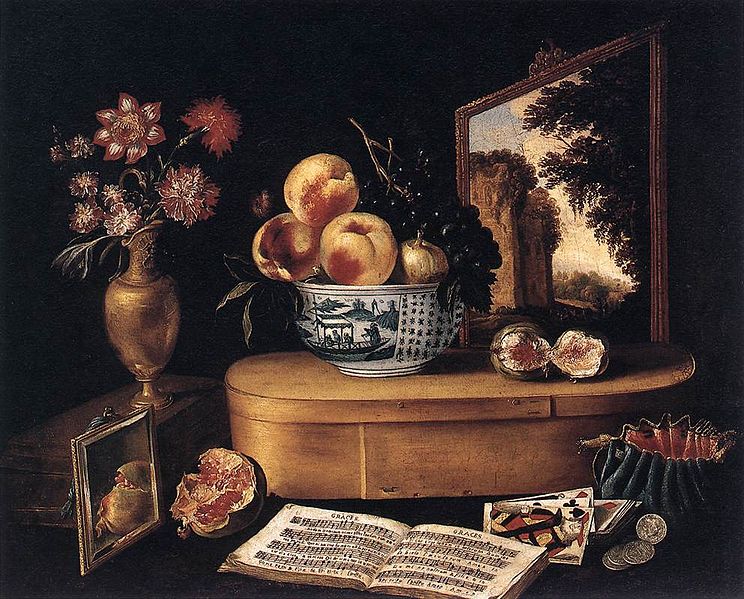
A sixth sense? Is that the solution? Is this what Aristotle means when talking about the ‘common’ sense? There cannot be room for a sixth sense in Aristotle’s theory of perception, for as we have seen each sense is individuated by the special type of perceptible quality it is sensitive to, and of these types there are only five in the world. There is no sixth type of perceptible quality that the common sense would be sensitive to. (And even if there were a sixth sense so individuated, this would not solve the problem of delivering multimodal content to the perceiver, because the sixth sense would be sensitive only to its own special type of perceptibles). The way forward is then to investigate how modally different perceptual contents, each delivered by one sense, can be somehow unified, in such a way that my perceptual experience of coffee may be bitter and hot at once. But how can bitter and hot be unified?
Modeling (metaphysically) of how the senses cooperate to deliver to the perceiving subject unified but complex perceptual content is another breakthrough Aristotle made in his theory of perception. But it is much less known than his criterion for the senses’ individuation. In fact, Aristotle is often thought to have given an ad hoc and unsatisfactory solution to the problem of multimodal binding (of which tasting the coffee’s flavor is an instance), by postulating that there is a ‘common’ sense that somehow enables the subject to perform all the perceptual functions that the five sense singly cannot do. It is timely to take a departure form this received view which does not pay justice to Aristotle’s insights. Investigating Aristotle’s thoughts on complex perceptual content (often scattered among his various works, which adds to the interpretative challenge) reveals a much richer theory of perception that it is by and large thought he has.
If the number of the senses is a difficult question to address, how the senses combine their contents is an even harder one. Aristotle’s answer to it deserves at least as much attention as his views on the number of the senses currently receive in scholarly as well as ‘popular’ culture.
Headline image credit: Coffee. CC0 Public Domain via Pixabay
The post Coffee tasting with Aristotle appeared first on OUPblog.